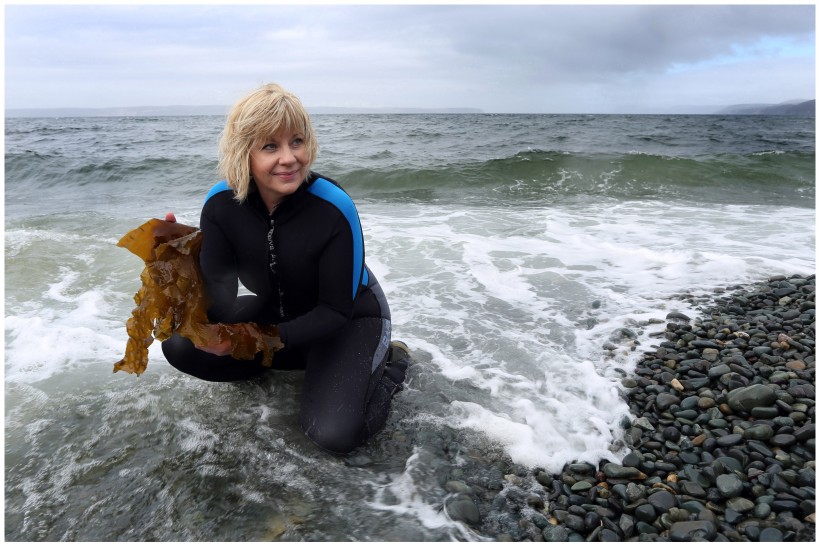Last year, Lisa Walsh, founder of Newfoundland’s Indigena Skincare, was selling her products to top establishments and planning a rebrand, a product expansion and a spa. This year’s pandemic and terrible snowstorm slowed her plans and necessitated a pivot to online retailing. Now, Walsh finds herself having to be as resilient as the wild botanicals used in her skincare.
Walsh founded Indigena in 2009 to create natural, safe, affordable skincare from botanical ingredients native to Newfoundland and Labrador. She has a production facility, a lab and an educational showroom based in Conception Bay South, near St. John’s.
She numbers the spectacular Fogo Island Inn among her clients but with tourism halted, selling online is the primary revenue stream.
“We are now 75 percent direct-to-consumer,” she said in an interview. “We've delivered hundreds of packages by hand. Sometimes friends and family helped me do this so I could still manufacture solo in the early days of the pandemic.”
Pandemic-induced innovations include a skin-friendly Botanical Hand Sanitizer that she is supplying to local businesses. Indigena is also launching new products online this quarter.
Walsh is trying to get Indigena’s top products like the hand sanitizer into federal and provincial departments. But she’s finding it hard to break into large supply chains.
“Local procurement should be the No.1 thing our governments should be focusing on to boost our economy, reduce small business bankruptcies and create more jobs,” said Walsh.
“The No.1 thing businesses can do is help each other by promoting buy local, collaborate online and at a grass roots level.”
Indigena has succeeded in boosting its presence in Atlantic Canada and Walsh says she appreciates the support.
Recently, St.John’s citizens voted Indigena ‘Best Cosmetics and Perfumes, Platinum Winner for 2020’ on the Community Votes Readers’ Choice platform. The company was also a 2020 Startup Canada regional semi-finalist.
Indigena is focusing on exports and has benefitted from business programming available from groups such as the Atlantic Canada Opportunities Agency, the Centre for Women in Business, Food & Beverage Atlantic and the provincial Export 2020 program.
Two virtual trade shows put Indigena in touch with buyers and extended the company’s reach internationally.
“When you start meeting buyers you are nervous, buyers have short attention spans,” she said. “Everyone is after them, they are hard to get in touch with, but we are currently working on several opportunities for export with several buyers.”
Despite the challenging year, company revenues are currently 22 percent above those of 2019.
The rebrand has been postponed and some team members are still part-time.
“I’m trying to keep Indigena as lean as possible until we rebound a little more before staff return to full-time positions,” she said.
Even before the pandemic, it was not easy building a business in coastal Newfoundland.
Early funding was hard to find, although Walsh did secure angel funding in 2013, and invested a lot in R&D, working with the National Research Council and Memorial University in St. John’s.
She had planned on moving the company's headquarters to a bigger centre but is postponing the move until the pandemic is under control.
“It is just going to take a little longer,” she said. “Manufacturing will remain in Newfoundland.”
Product ingredients include antioxidant-rich botanicals extracted from ingredients like partridge berry, wild red clover, sea buckthorn, cloudberry, blueberry, and Labrador tea.
“The plants that grow on the Avalon Peninsula are tough, they have adapted to survive, that is exactly what everyone has to do now, on a personal and professional level.”
Walsh said the pandemic has made her more competitive, efficient and organized. She’s also come to appreciate her downtime.
“I focus every day on doing something that makes me feel good. I’m doing more yoga, exercise, seeing family more…things that give back the energy this whole thing has depleted.”










